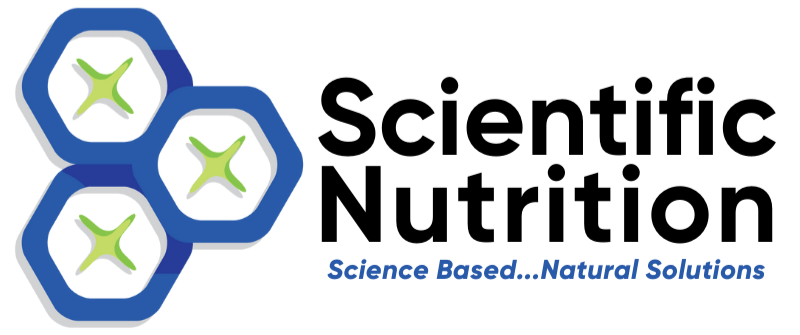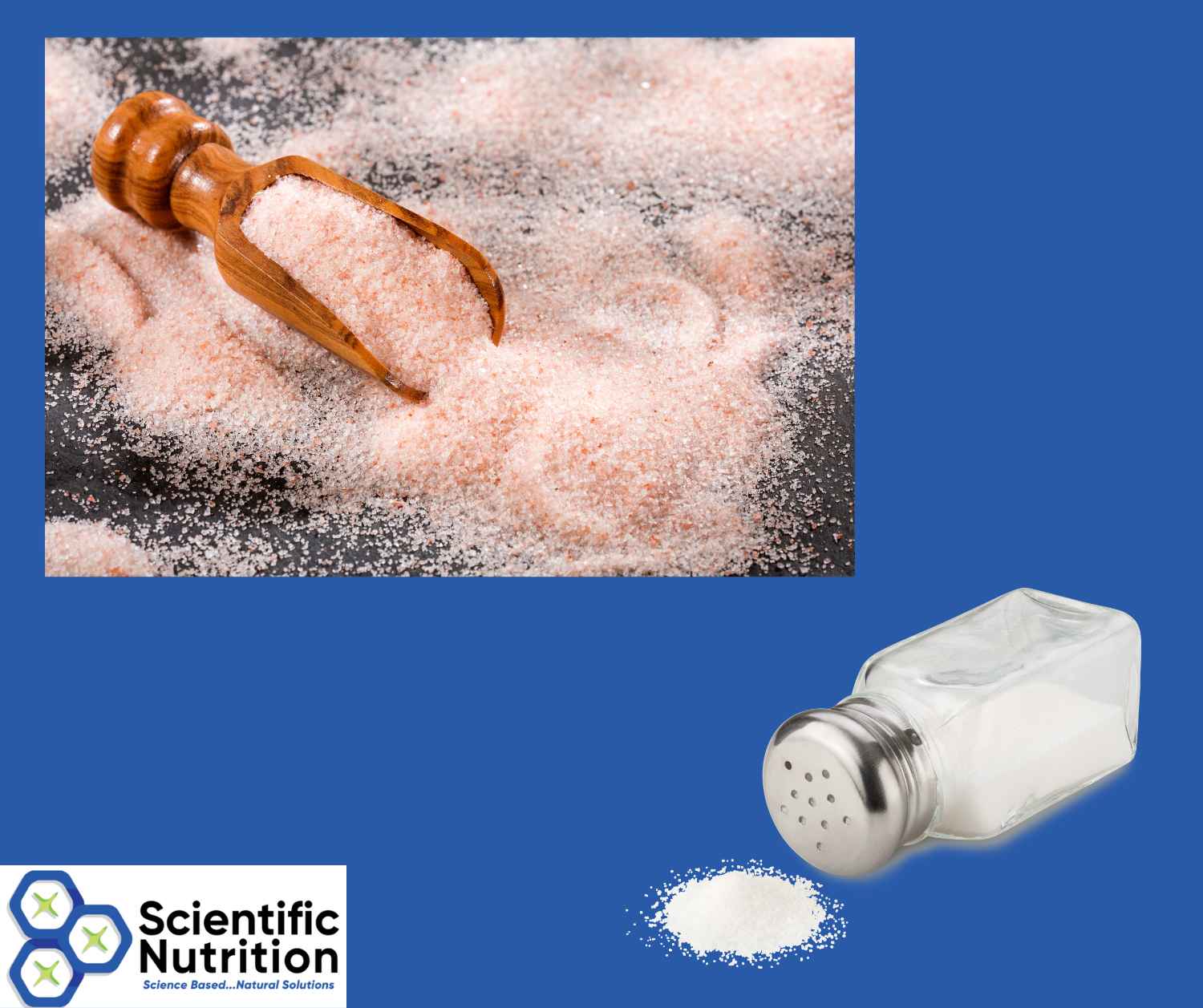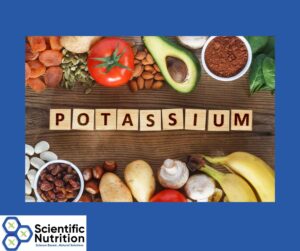What do you need to know about Sodium?
Sodium (Na) is the fundamental extracellular electrolyte in the human body. In other words, it is the most common electrolyte found outside cells. Interestingly, Sodium makes up about 2.8% of Earth’s crust and it is the sixth major element on the planet. This means that we can find sodium in the natural world. It can offer an extra free electron but isn’t needed for enzyme functions.
Na is essential for your life. It does help your body in one of the most crucial functions: regulating fluid balance. Your body is 60-70% made up of fluid. Now, imagine the important role of Sodium in your daily life!
In this blog, you will have a deep dive into Sodium. But first thing first…
Why is Sodium an essential electrolyte?
The word worthy of your attention here is ‘electrolyte.’ Electrolytes are electrically charged minerals that profoundly impact how your body functions. They balance electrical charges inside and outside our cells. This balance is crucial for the proper functioning of your nerves, muscles, vital organs, and every single cell in your body.
Sodium (Na) is the most important among these 4 major electrolytes. It is indispensable and takes the lead in regulating fluid balance. It ensures that cells receive the hydration they need which is crucial in that it directly affects our blood pressure.
Na is highly water-soluble. It is a great solvent in your body that is responsible for dissolving chemicals and minerals such as calcium, magnesium, zinc, iron, copper, and more.
So, Sodium is the multi-tasker that aids in nerve impulse transmission and directing muscle contractions, including the most vital one: your heartbeat. When the cellular level gets low enough, palpitations will occur as your heart is unable to electrically regulate the beats.
What are the dietary sources of Sodium?
The main source of Na is table salt. This iodized form is NOT good for you. Yes, the one you used in almost every second dish. The minute amount of iodine added does not make up for the amount of deficiency the common person experiences. Iodized salt contains an anti-caking agent such as sodium aluminosilicate or calcium aluminosilicate as well as fluoride salts. You do not want to eat aluminum and fluoride.
The RDA is 150 mg a day for Americans, whereas the Japanese minimum recommended daily allowance is 1,500 mg. Just compare longevity statistics and thyroid issues to see how beneficial real iodine can be.
Na is the primary mineral (although subpar in form) gained through modern foods like pizza, processed chicken, bread, rolls, and fast foods. But as you know, fast foods and other processed foods bring more harm than good, so I won’t advise you to gain sodium from these resources. Use a mineral-rich form like Real Salt, Redmond Salt, or a 99% plastic-free form like Colima for trace minerals.
What functions does Sodium perform in your body?
Sodium is not just another salty dietary element. It performs crucial functions in the body. It effects all of your major organ functions.
A. Fluid balance and blood pressure regulation
Sodium controls the ebb and flow of water in and out of your cells. This regulation ensures that your cells stay plump and hydrated by regulating each cell’s permeability. In other words, Sodium ensures that the right amount of water remains in and around our cells. Its ability to hold onto water prevents dehydration, which enables our cells to function optimally.
When Na levels are too high, your body retains more water, increasing blood volume and blood pressure. Excessive Na intake can tip the scales toward hypertension, which can have serious health consequences. Reducing high blood pressure requires more than a low Sodium diet, you also need to eliminate toxic heavy metals within arteries and trapped Cadmium in your kidneys.
Sodium is primarily on the outside of the cell helping push in nutrients, water, and oxygen. If you are low at this level, the cell exchange is compromised leaving you feeling tired as you probably have a slow metabolism and adrenal function is exhausted.
B. Nerve signaling and muscle function
Nerve cells use sodium to transmit signals. Allowing you to move, think, and feel. When a nerve cell fires, sodium rushes in to create an electrical charge that travels along the nerve fiber. This is how your brain communicates with the rest of your body enabling everything from a thought to a muscle contraction.
Yes, your muscles depend on sodium too, so they can function properly. When a signal from a nerve cell arrives at a muscle, it triggers the release of Na ions inside the muscle cells. It then tells the muscle how the contraction process should go, whether you’re lifting a book or sprinting down a track.
C. Acid-Base balance
Sodium plays a pivotal in the body’s pH balance. The pH balance measures the acidity or alkalinity of your body. Sodium acts as a buffer and helps you prevent drastic swings in the pH levels. When your body becomes too acidic, Na ions can help neutralize the excess acid to help keep your internal environment within a healthy range.
This vital mineral regulates your nutrient exchanges in the blood and interstitial fluid (between the cells).
D. Adrenal function
Na is regulated by your adrenal glands so if you are suffering from adrenal fatigue, you need to work on your Sodium level. This mighty mineral also plays a role in your blood sugar due to its role in the adrenal gland. If you need energy and there is none available in the form of glucose (sugar), it will send adrenaline.
What is Sodium toxicity and deficiency?
It is a vital mineral for a healthy life, but if it is in excess or deficiency can disrupt the balance of a healthy life. It’s balance with Potassium is vital as the ratio between them shows your life vitality. If the ratio is low, you have a low electrical activity that may cause fatigue, illness, or disease. If it is high it indicates inflammation and acute stress. A Hair Mineral Analysis will show you where you are at so I can help you to correct it.
Sodium toxicity
Na toxicity, often referred to as Hypernatremia occurs when there is an excessive concentration of sodium in the blood. This can result from excessive sodium intake or, more commonly, insufficient water intake. Often the Na and Potassium will be high after a traumatic event or stress has occurred as they are helping the cell move Calcium and Magnesium for a calming effect.
Sodium deficiency
Na deficiency, known as Hyponatremia, happens when Na is insufficient in the blood. Various factors, including inadequate dietary intake, excessive water consumption, or certain medical conditions and medications, can cause this. This also can cause a multitude of side effects as a wake-up call that must be taken seriously.
Since the 2019 viral pandemic scare, many have self medicated with Zinc which lowered their Sodium in relation to potassium. This left their cell membranes ghostly thin and lacking adequate electrical charge.
The question is, which is more common? Toxicity or deficiency?
Interestingly, hyponatremia (sodium deficiency) is more commonly encountered in clinical practice. This may come as a surprise, as Na excess often gets more attention due to the prevalence of high-sodium diets and high blood pressure information.
Physical, mental, and emotional symptoms of Sodium imbalance
A. Physical symptoms
If you are not taking in proper amounts in your diet, it will have serious consequences for your health eventually.
Sodium deficiency:
If your body has insufficient sodium, you’ll face
- Muscle cramps and weakness
- Nausea and vomiting
- Low blood pressure and dizziness
- Swelling (edema)
- Anorexia
- Seizures (in severe cases)
- Less sweating for detoxification and cooling
- Dehydration
- Slow oxidation/metabolism due to thyroid being compromised
- Bloating or gas
- Allergies
- Heart palpitations
- Adrenal burnout and fatigue
- Weakness
- Possible pH acidity
- Digestive issues due to low hydrochloric acid levels
Sodium toxicity:
If you are taking excessive sodium intake, you will face;
- High blood pressure (hypertension)
- Increased thirst and urination
- Headaches and nausea
- Fast oxidation/metabolism
- Irritability
- Muscle twitching
- High Aldosterone hormone due to inflammation
- More likely to have belly fat from Cortisol hormone trying to negate Aldosterone
B. Emotional symptoms
The emotional consequences of a Na imbalance are often underestimated. It plays a role in the complex chemistry that influences your mood.
Sodium deficiency:
- Irritability and restlessness
- Anxiety and panic attacks
- Depression and low mood
- Difficulty concentrating
- Emotional instability
Sodium toxicity:
- Emotional stress due to hypertension
- Irritability and mood swings
- Agitation or nervous due to excess lowering of Calcium and Magnesium
- Elevated stress levels
- Cognitive impairment
C. Mental symptoms
The mental consequences of Na imbalance are subtle yet significant. It influences the brain’s ability to function correctly.
Sodium deficiency:
- Confusion and disorientation
- Memory difficulties
- Depression, despair, or suicidal
- Mental fatigue
- Apathetic or negative attitude
- Difficulty concentrating
- Cognitive impairment
- Hallucinations (in severe cases)
Sodium toxicity:
- Cognitive impairment
- Memory problems
- High energy and active
- Confusion and brain fog
- Difficulty focusing
- Agitation, irritability, or volatile
How to maintain the right Sodium balance for optimal health?
The right balance of Na in your body is essential for overall well-being.
For example, our natural Sodium Chloride can convert into Hydrochloric Acid in the stomach. If your level is low in your tissue analysis (Hair test), your stomach acid and digestion are compromised. If this pH balance is off, it can disrupt the rest of your digestion too!
A fast oxidizer or fast metabolism individual typically has too much stomach acid triggering indigestion as well. A slow oxidizer may have GERD or reflux set off by a Hiatal hernia, gluten sensitivity, slow motility, and too many carbohydrates in the diet.
When you work with me along with your Hair Mineral Analysis results we will focus on the level and balance of Sodium to Potassium ratio with proper supplementation and diet.
Here is how you can navigate your Na intake.
Recommended daily intake of Sodium:
The recommended daily Na intake varies, but generally in the U.S., it is 1,500 mg (2/3 teaspoon) and no more than 2,300 mg (about one teaspoon of salt). Some individuals, like those with hypertension or certain medical conditions, may need even less.
Reducing excessive Sodium intake:
- Pay attention to food labels, especially Na content in processed foods.
- Cooking at home allows you to control the levels as well as eating clean, nutritious foods.
- Minimize canned, processed, and restaurant food consumption as it is often used as a preservative.
- Use herbs and spices to flavor dishes instead of excessive salt.
Hair Mineral Analysis for Sodium imbalance:
What if you still feel your body has a Na imbalance?
Consult a healthcare consultant such as myself for personalized recommendations through Hair Mineral Analysis to know what your body needs. You can comprehensively assess your sodium balance by considering a Hair Test.
This non-invasive test measures mineral levels in your hair, providing insights into your body’s mineral status over a month or so, not just a moment in time. It can help identify imbalances and guide dietary adjustments to achieve optimal sodium health.
LET’S CHAT about your health goals!
Further Readings and Studies
https://link.springer.com/article/10.1007/s11104-013-1801-2
https://www.ncbi.nlm.nih.gov/pmc/articles/PMC3951800/
https://doi.org/10.1093/aob/mcu217
https://www.sciencedirect.com/science/article/abs/pii/S0002916522040096
Copyright Scientific Nutrition, LLC 2023




